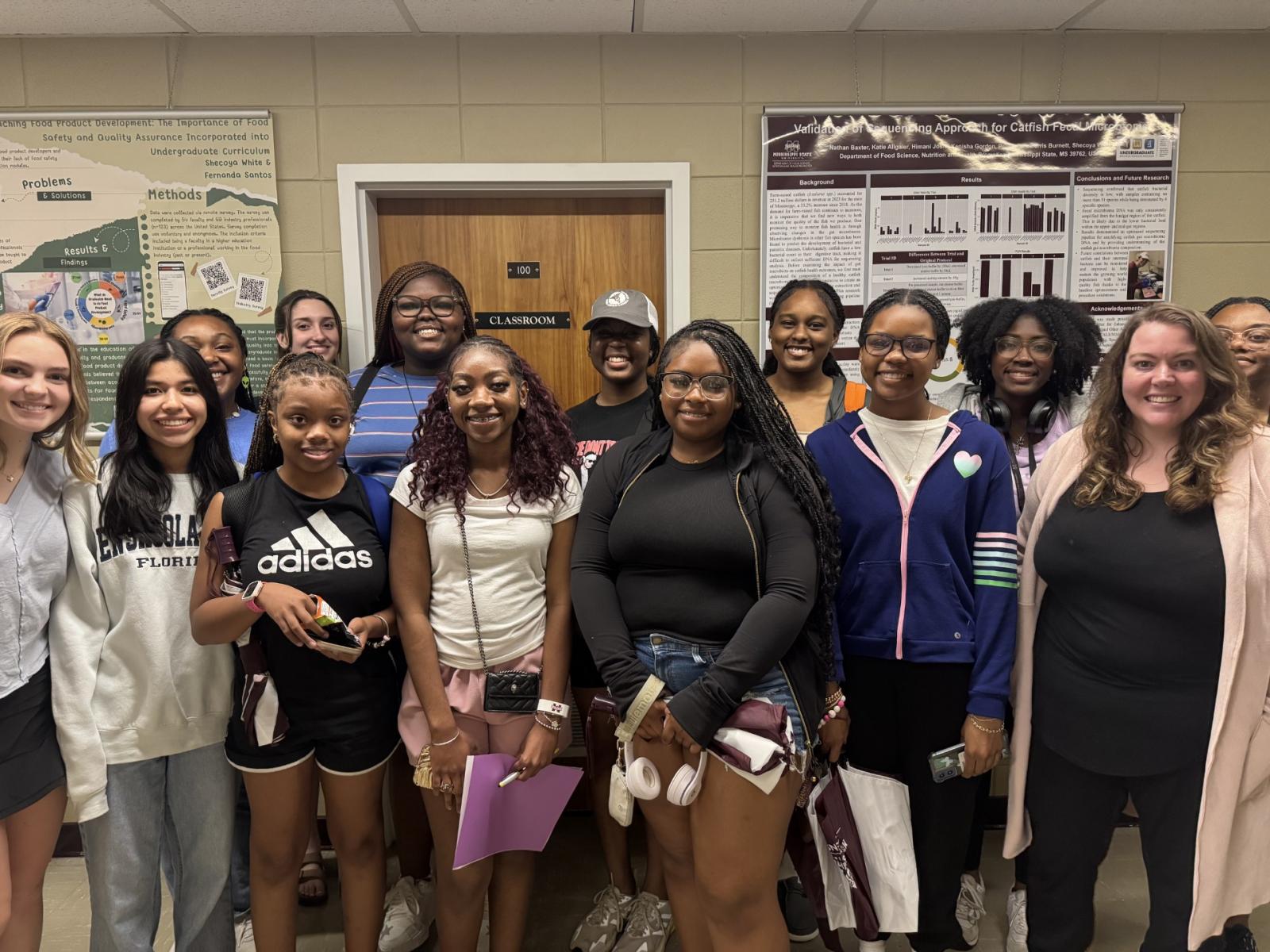Thinking Globally, Acting Locally: RMS Scholars tackle health disparities as they learn about careers in medicine, science
Rural Medical and Science Scholars visiting Mississippi State University this week participated in a reflective session led by the International Institute Deputy Director Masey Smith—just one activity in a broader summer experience designed to cultivate the next generation of rural medical and science leaders.
Smith, who leads MSU’s International Research and Development Office, guided the 25 students through a series of interactive discussions and problem-solving activities centered on the social determinants of health.
“The hands-on international activities allow students to explore global problems while considering social determinants of health, rurality, cultural and social norms,” Smith said. “When we understand the context of our communities, we can design interventions that are contextualized and sustainable.”

Throughout the session, students reflected on their own experiences and explored how factors like education, environment and access to care shape health outcomes. Working in small groups, they developed problem statements and proposed community-based interventions for Humphreys County—where MSU and MSU Extension have made a lasting impact fostering sustainable systems for better health and education outcomes. Smith said these activities encouraged students to think critically, collaborate and apply global health frameworks to address real-world challenges.
Latara Arterberry, Extension specialist I and Rural Medical and Science Scholars director in the Department of Biochemistry, Nutrition and Health Promotion, emphasized the importance of this kind of experiential learning.
“These students are not just learning about public health—they’re practicing it,” she said. “They’re building the skills and mindset needed to lead in both rural and global contexts.”
Jasmine Harris-Speight, Extension instructor and Rural Medical and Science Scholars director, has led coordination of the program for nearly a decade.
“It’s incredible to watch these students grow,” she said. “They come in curious and leave confident, ready to make a difference in their communities.”
The RMS program also has built a strong culture of mentorship. Former participants are invited back each year to offer guidance and encouragement to the new cohort.
“These scholars are applying critical thinking and resource mapping to a global context,” Smith said. “This is the next generation of public health champions who actively advance their local communities as volunteers, advocates and policy drivers.”